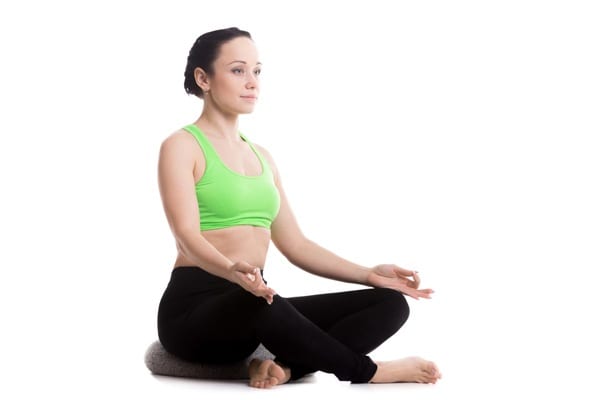Anxiety disorders are the most prevalent mental health disorders in the world. But despite the number of people (both children and adults) who experience these disorders, the majority of cases still go untreated.
While anxiety disorders are quite common, we should not overlook the adverse effects they have on many people’s lives. In children, anxiety may have a negative impact on social skills and academic performance. In adults, unmanaged anxiety may lead to depression and suicidal thoughts.
But how do you treat anxiety? Here are some of the evidence-based treatments for anxiety that you may want to consider.
How to Tell if Someone is Suffering From Anxiety
It is normal for people to get anxious from time to time but some people experience it more frequently and a lot more forcefully. Sometimes, it comes to the point that anxiety has taken over their lives.
If you are worried that that you or someone you know may have an anxiety disorder, here are some signs to watch for: excessive worry; sudden panic attacks; fear of crowds or social situations; irrational fear of specific things or situations, such as spiders or of heights; self-consciousness; stage fright or intense fear of public speaking; panic attacks; flashbacks of shameful or embarrassing situations; racing thoughts or racing heart; muscle tension; chronic indigestion or bowel issues; insomnia or sleep disturbance.
Evidence-Based Anxiety Treatments
Millions of people around the world suffer in silence from anxiety. Many who do reach out for help end up receiving the wrong or insufficient treatment.
This article looks at three evidence-based treatments that can help you manage Generalized Anxiety Disorder and other related disorders. When we talk about evidence-based therapy, we are referring to treatments that are proven to have a benefit, based on peer-reviewed scientific evidence. They are:
- Cognitive Behavioral Therapy (CBT)
This is a kind of talk therapy that aims to discover a solution to the problem that brings a person into treatment. The goal of this therapy is to change the destructive behavioral pattern that may lead to anxiety or other mental health problems.
CBT does this by focusing on a person’s attitudes, beliefs, thoughts, and images, and examining the way these things relate to how he or she deals with emotional issues.
For this type of therapy, the patient is typically encouraged to have a once-a-week 50-minute session with the therapist. During these sessions, the therapist and patient work together to identify and address the cognitive processes that cause the patient to become anxious. They also work out new strategies for dealing with these processes and tackling the anxiety.
CBT is usually a time-limited form of treatment. After completing CBT, the person should be able to identify and cope with the various challenges experienced throughout a typical day.
- Exposure and Response Prevention (ERP)
This type of therapy encourages patients to directly confront the things that make them anxious, without performing any of the compulsive ritual behaviors they may have relied on the past. This is accomplished through increasing exposure to the stimulus or thing that causes the anxiety.
The logic behind this therapy is to expose patients to the sources of their fear until they are able to tolerate and live with them. ERP teaches patients that they are able to survive even when the threat of their fears is always present.
Experts claim that this therapy works because patients are able to discover new ways of confronting their fears and the things that make them anxious. However, ERP can feel a bit traumatic for some people. That is why it is recommended that this therapy only be performed by a qualified professional who is skilled in this technique.
- Mindfulness-based Cognitive Therapy (MBCT)
This therapy combines the principles of cognitive therapy with meditative practices to help patients practice mindfulness. According to research studies, people struggling with anxiety often recall negative thoughts and experiences from the past, which cause them to worry about their future, making them even more depressed and anxious.
Through mindfulness, patients can identify their thought and mood patterns. Mindfulness practice combined with cognitive therapy can also reverse the downward spiral most people with anxiety experience by teaching them to be present in the moment and have appreciation for the small things in life.
Some activities that can promote mindfulness include stretching, body scan, yoga, and the three-minute breathing space. These practices can be taught by licensed therapists who specialize in MBCT.
When you are feeling pressured or stressed out, you can often find relief by playing a sport like soccer or basketball, or taking a walk. But if you feel that you have constantly been fighting off anxiety, you may be able to get help from seeking an evidence-based type of therapy like the ones that we have mentioned above.
Conclusion:
Anxiety may be common, but its effects can be devastating if left untreated or unmanaged. If you know someone or you, yourself, are suffering from generalized anxiety disorder, it is important that you seek the help of a qualified professional. In this way, he or she can determine which is the best evidence-based anxiety treatment for your condition.
If you or someone you know experiences mental health issues, it is important to seek help from a qualified professional. Our Resource Specialist can help you find expert mental health resources to recover in your community. Contact us now for more information on this free service to our users.
Author Bio:
Emily is founder of BodyShape101.com, a blog where she and her associates talk about exercise, fitness, and yoga. BodyShape101 is concentrated on exercise & fitness tips and product reviews. She is also a mother of one and she tries to find balance between her passion and her biggest joy in life.
The opinions and views expressed in this guest blog do not necessarily reflect those of www.rtor.org or its sponsor, Laurel House, Inc. The author and www.rtor.org have no affiliations with any products or services mentioned in this article or linked to herein.
Recommended for You
- The Truth about Relapse in Addiction Recovery - April 14, 2025
- The Power of Peer Support in Mental Health Recovery - April 10, 2025
- Artificial Intelligence in Anxiety Management: How AI Helps Users Cope with Anxiety Symptoms - April 3, 2025








Unmanaged anxiety can lead to health problems. It is crucial to understand your mental health and know how to treat your anxiety. Thank you for posting!